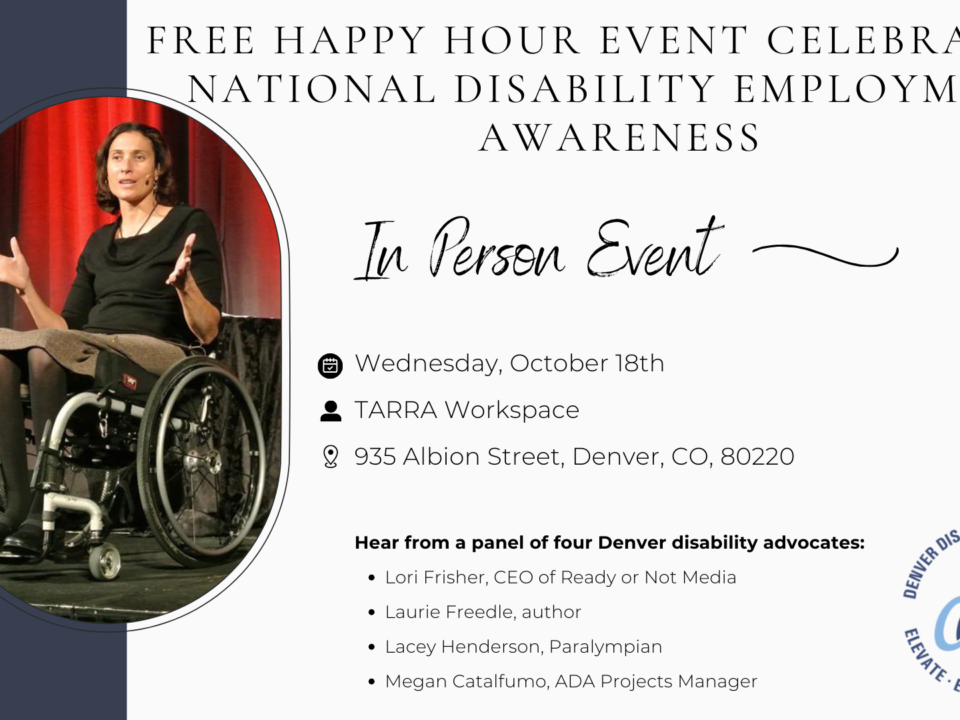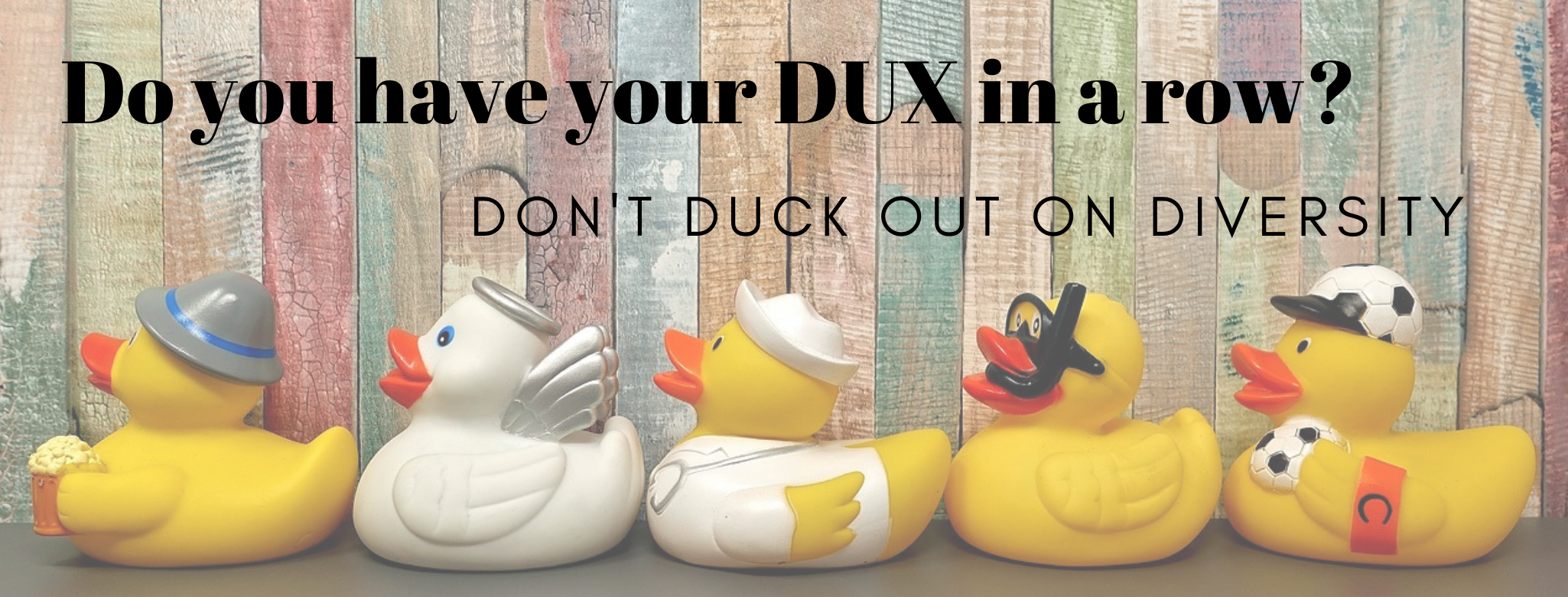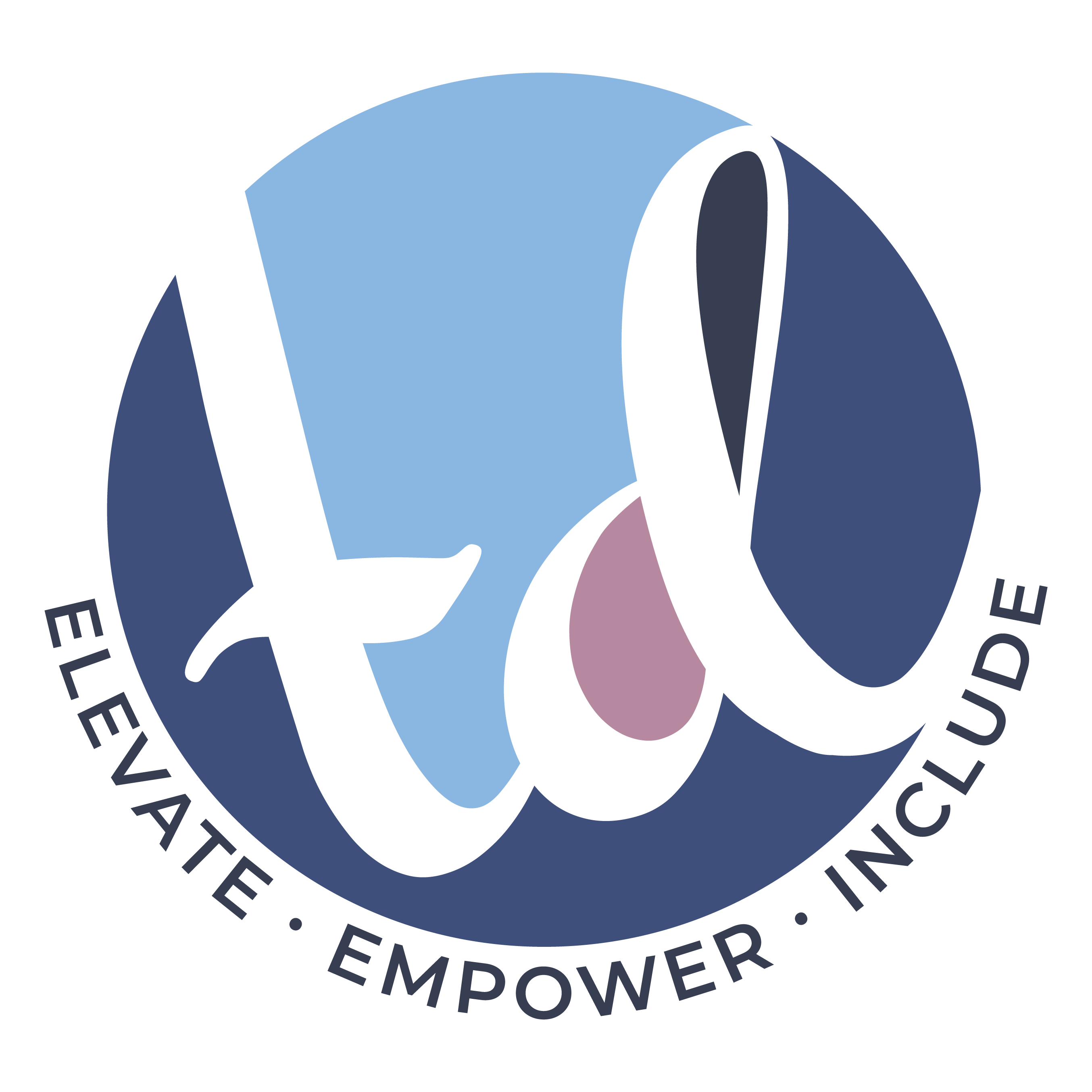
I couldn’t decide if being one of the late adds to the Paralympic Team was a good thing or a bad thing. On the negative side, I didn’t experience the lead up to the Games with the anticipation, planning and fanfare that goes along with this major world production. On the positive side, I didn’t experience the lead up to the Games with the anticipation, planning and fanfare that goes along with this major world production.
As I boarded my plane to Houston, which was the first stop for all athletes and staff, I was only beginning to realize the magnitude of what I was about to do. Having such a short prep time and a million things to do, I didn’t have the opportunity to take the time out to think about the fact that participating in the Paralympic Games was a long time goal and as a kid I always dreamt of becoming an Olympic athlete. And since that never happened, I thought I had reached the ultimate manifestation of that goal in making it to the Atlanta Olympics as a USA Press Officer. But this time would be a very different experience, going as an athlete. And it took a while to sink in.
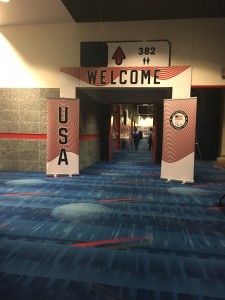 We made our first stop in Houston to go through “team processing.” It’s a packed 24-hour last minute preparation before heading to the Games location. For us, this took place in Houston, Texas, and athletes from all over the country descended upon one hotel, over the course of six cycles, before the long trip to Rio.
We made our first stop in Houston to go through “team processing.” It’s a packed 24-hour last minute preparation before heading to the Games location. For us, this took place in Houston, Texas, and athletes from all over the country descended upon one hotel, over the course of six cycles, before the long trip to Rio.
When I originally sent my text to Steve that said #SeeYouInHouston, I thought we’d meet up in Houston and fly to Rio together, but the shooting team went through processing on day two and Steve, with the cycling team, went through in day three. Although the processing for staff was a little bit different than that of the athletes, there was still much to do for both of us.
I arrived in Houston on Tuesday, August 30th and we jumped into our readying mode first thing the morning of the 31st.
We met for breakfast in a conference room that had been designated for Team USA for 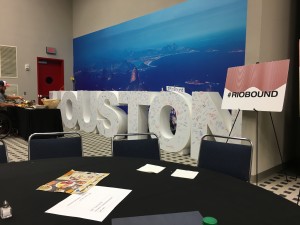 meals, gathering and hanging out for the entire time we were there. Immediately after breakfast we started with a couple of hours of athlete education. This was lead by two of my friends, both Paralympians, John Register and Susan Katz.
meals, gathering and hanging out for the entire time we were there. Immediately after breakfast we started with a couple of hours of athlete education. This was lead by two of my friends, both Paralympians, John Register and Susan Katz.
Although all of the athletes who go to the Games have gone to a variety of competitions over the course of a lifetime, traveled internationally, and competed at a high level, everything is intensified each four years, when the big event rolls around. There are important things to know and strategies to think about when preparing yourself for the mix of excitement and high level competition. In our meeting we covered a variety of items such as: how to say a few necessary words in Portuguese such as good morning and thank you, strategies to deal with having family and friends in Rio to cheer you on and how not to have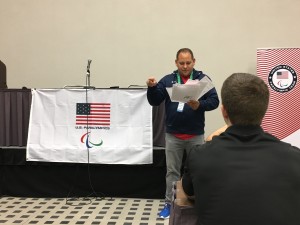 that be a distraction, our responsibilities as visitors to Rio and code of conduct, even how to treat the American flag in victory celebrations. One of the most important things I learned (I think it was actually in one our shooting team meetings after we arrived in Rio) was that the Games brings out many different personality traits you might not have experienced before in your friends, teammates and competitors, such as—nerves, stress, being overly crabby, over excited, higher intensity, less friendly, highly focused, etc. And not to take it personally when one of your teammates acts in a different way than usual. In other words, let things roll off your back, because everyone is under pressure at the Games, whether self-imposed or working with their teammates, trying to please sponsors, etc. And while it might be easy to have your feelings hurt by actions or statements made, holding on to anger or resentment, or getting yourself tied in knots over something like a teammate’s mood or actions, is not going to serve you in your own experience. As small a piece of advice as that seemed to be, it was a great help in letting go of anything that threatened to divert my attention from competing.
that be a distraction, our responsibilities as visitors to Rio and code of conduct, even how to treat the American flag in victory celebrations. One of the most important things I learned (I think it was actually in one our shooting team meetings after we arrived in Rio) was that the Games brings out many different personality traits you might not have experienced before in your friends, teammates and competitors, such as—nerves, stress, being overly crabby, over excited, higher intensity, less friendly, highly focused, etc. And not to take it personally when one of your teammates acts in a different way than usual. In other words, let things roll off your back, because everyone is under pressure at the Games, whether self-imposed or working with their teammates, trying to please sponsors, etc. And while it might be easy to have your feelings hurt by actions or statements made, holding on to anger or resentment, or getting yourself tied in knots over something like a teammate’s mood or actions, is not going to serve you in your own experience. As small a piece of advice as that seemed to be, it was a great help in letting go of anything that threatened to divert my attention from competing.
But, I digress. Back to processing. After our educational session, there was an incredible high to follow and that was going through a handful of stations from signing memorabilia (such as Olympic flags) to getting clothing to learning about the Zika virus. Each of us received a checklist of all of the stations we needed to go to and then got at it.
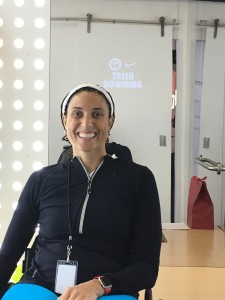 My list had me starting with Omega watches, where we received a beautiful commemorative timepiece, and then I went to Nike, where I would receive two special outfits as well as a variety of everyday wear. When I got to Nike I had a wait a few minutes while they readied my dressing room. I talked to a couple of the employees while there and they asked me all kinds of questions about my sport and what shooting events were like, but shortly after arriving, I was whisked away in mid-sentence. When I got to my dressing room, my two helpers ushered me in, and the first thing I saw was my name projected on the mirror. It was one of those things that wakes you up and focuses your attention. I soaked up the moment because it was when I could finally grasp what a special journey I was on. And while my event at these Games was shooting, it made me think of much more than the time I have spent in this sport, but what I have worked for, for years. Every bit of time I had poured into training, things I have sacrificed, successes and tough learning moments, had all culminated into a dream come true—to represent my country on sports biggest stage.
My list had me starting with Omega watches, where we received a beautiful commemorative timepiece, and then I went to Nike, where I would receive two special outfits as well as a variety of everyday wear. When I got to Nike I had a wait a few minutes while they readied my dressing room. I talked to a couple of the employees while there and they asked me all kinds of questions about my sport and what shooting events were like, but shortly after arriving, I was whisked away in mid-sentence. When I got to my dressing room, my two helpers ushered me in, and the first thing I saw was my name projected on the mirror. It was one of those things that wakes you up and focuses your attention. I soaked up the moment because it was when I could finally grasp what a special journey I was on. And while my event at these Games was shooting, it made me think of much more than the time I have spent in this sport, but what I have worked for, for years. Every bit of time I had poured into training, things I have sacrificed, successes and tough learning moments, had all culminated into a dream come true—to represent my country on sports biggest stage.
My helpers were there to look after the details of size and fit because Nike provided the podium outfits (which each athlete would be given, and which was required to wear in a medal ceremony) and a media outfit, which would be used for interviews, etc. After that, I tried on a variety of other shoes and clothing to make sure the duffle bag of clothing they had put together for me would fit. Each time I put on another USA t-shirt, or sweatshirt or tank top, I was filled with a new sense of pride. It was probably one of the highlights of my Games experience. Not that I got a whole new wardrobe, but what that wardrobe represented.
After Nike, I headed over to Ralph Lauren to receive my opening and closing ceremony 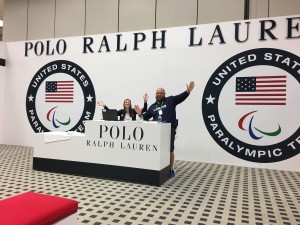 outfits, as well as more daily wear clothing. The folks at Ralph Lauren made it really fun for us as they nipped and tucked the clothing, pinning it for tailoring after we would leave that station of processing and once done, it would be sent over to Rio and arrive with the perfect fit. This was especially cool, since clothes are always tricky when you are a wheelchair user. They gap where you don’t want them to gap, material bunches, and some outfits look plain awful. But that wasn’t happening here. The woman who assisted me was from London and informed me in her lovely British accent that everyone should have a “proper” tailor for all of their clothing and I imagined how nice that would be, but not sure it was realistic, in my world, to have an entirely tailored wardrobe. But she made my pants fit perfectly, shortened my blazer so it
outfits, as well as more daily wear clothing. The folks at Ralph Lauren made it really fun for us as they nipped and tucked the clothing, pinning it for tailoring after we would leave that station of processing and once done, it would be sent over to Rio and arrive with the perfect fit. This was especially cool, since clothes are always tricky when you are a wheelchair user. They gap where you don’t want them to gap, material bunches, and some outfits look plain awful. But that wasn’t happening here. The woman who assisted me was from London and informed me in her lovely British accent that everyone should have a “proper” tailor for all of their clothing and I imagined how nice that would be, but not sure it was realistic, in my world, to have an entirely tailored wardrobe. But she made my pants fit perfectly, shortened my blazer so it 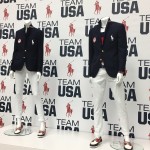 wouldn’t drag on my wheels, and in the process made it a very
wouldn’t drag on my wheels, and in the process made it a very 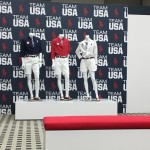 enjoyable part of my day.
enjoyable part of my day.
After the clothing stops, there were things like: getting measured for my Paralympic ring, getting a bag and toiletry samples at P&G, picking up a couple of pairs of Oakley sunglasses, having a blood draw by researchers from the University of Utah studying Zika, and learning more about anti-doping measures and drug testing.
When I was done, I went to the final packing station where I was rejoined with my giant roller duffle from Nike, a giant roller duffle from Ralph Lauren, my own luggage I had brought and a large box. Here we had to consolidate, repack and if there was anything we 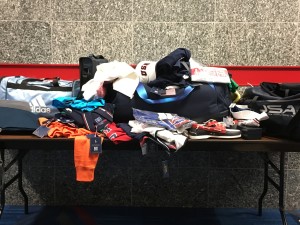 wanted to send home it went in the box. The only parameters were that you had to take all of the USA clothing received that day, as it was expected to be our everyday wear around the Village and at our venues. And there was plenty. In the time I was in Rio, I didn’t have to wear the same thing twice.
wanted to send home it went in the box. The only parameters were that you had to take all of the USA clothing received that day, as it was expected to be our everyday wear around the Village and at our venues. And there was plenty. In the time I was in Rio, I didn’t have to wear the same thing twice.
Once that was finished, so were we! It was time to head to the busses.
We had a celebratory exit from the hotel, boarded buses and had a police escort through Houston, during rush hour. But you would have never known, as they completely cleared the highways as we drove down them, so we didn’t have to stop once on the way to the airport.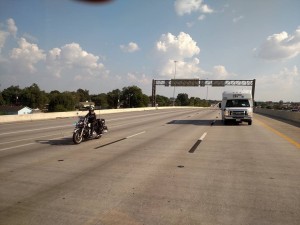
Once at the airport, check in went smoothly, considering how many athletes were lined up, all with matching bags ready to head to Rio. We had racing chairs, rifles and pistols, and a variety of other sports equipment to check. Our volunteers and the United staff did an amazing job of getting us through quickly.
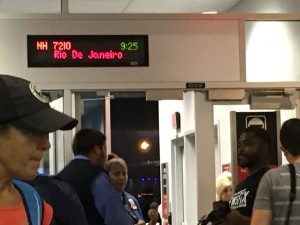 Following that, we had some time to lounge at the airport, eat snacks, or just roam around. Since Steve’s flight was coming in at the time we are leaving, we had a quick 10 minutes to catch up in the Houston airport. It was great to see him, if even for a few minutes, after he had been gone from home for two weeks. We said, “goodbye, see you soon,” and I headed back to be with the team. We boarded the flight just before 9 that evening and then it was happening. We were on our way to Rio!
Following that, we had some time to lounge at the airport, eat snacks, or just roam around. Since Steve’s flight was coming in at the time we are leaving, we had a quick 10 minutes to catch up in the Houston airport. It was great to see him, if even for a few minutes, after he had been gone from home for two weeks. We said, “goodbye, see you soon,” and I headed back to be with the team. We boarded the flight just before 9 that evening and then it was happening. We were on our way to Rio!
